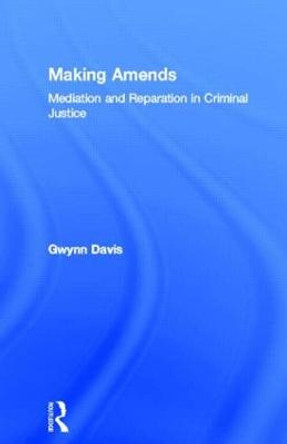Description
Explores how reparations in international criminal justice have been constituted and contested in various social contexts.
About the Author
Christoph Sperfeldt is Senior Lecturer at Macquarie University. He is also Fellow at the Center for Human Rights and International Justice at Stanford University, Honorary Fellow at the Peter McMullin Centre on Statelessness, and Adjunct Professor at the Center for the Study of Humanitarian Law at the Royal University of Law and Economics in Cambodia. He was previously Deputy Director at the Asian International Justice Initiative, where he supported human rights, transitional justice and rule of law programs in Southeast Asia. Prior to this, he was Senior Advisor with the German development cooperation (GIZ) in Cambodia.
Reviews
'Reparations sound great, in theory, but in practice can frustrate as thorny and empty. Christoph Sperfeldt stanches this disappointment and stands up for this undervalued cornerstone of social repair. His book is sensible and sensitive, and equally thoughtful as it is thought-provoking. Sperfeldt delivers a must-read that makes a persuasive case to foreground a grounded understanding of reparative justice.' Mark A. Drumbl, Class of 1975 Alumni Professor of Law, Director, Transnational Law Instititute, Washington and Lee University
'This is an original and important study of the emergence of reparations across four ground-breaking cases at two very different international(-ised) courts. Sperfeldt asks consequential questions that are focussed on reparations as they have been legally and socially practiced and contested. Intelligently conceived, lucid and fascinating reading for scholars and practitioners.' Rachel Hughe, Senior Lecturer, School of Geography, Earth and Atmospheric Sciences, University of Melbourne
'This book provides a timely contribution to the further academic and practical-oriented discourse on reparations in international criminal justice by sharp theoretical insights combined with a solid ground in empirical studies. It is exactly this combination of theory and empirical-based observations that is needed to stimulate victim-centred reparative approaches that are meaningful to both victims and societies at large.' Rianne Letschert, President and Rector Magnificus, Maastricht University
'This book is a penetrating analysis into the practices around reparations. Much of the literature concentrates on the normative position of repairing the harm caused by international crimes before institutions like the International Criminal Court. Instead, Sperfeldt's work broadens the gaze to consider the 'social life' and lived experience of practices around reparations, making visible the behaviour, work and application of delivering redress to victims that are not captured in more doctrinal accounts or the law itself. Based on his years of experience working at the Extraordinary Chambers in the Courts of Cambodia and with civil society and victims, this is a must-read for those wanting to obtain a fresh, insightful understanding of the contested nature of reparations, their implementation and how they are grappled with by practitioners in remedying international crimes.' Luke Moffett, School of Law, The Senator George J Mitchell Institute for Global Peace, Security and Justice, Queen's University Belfast
Book Information
ISBN 9781009166454
Author Christoph Sperfeldt
Format Hardback
Page Count 456
Imprint Cambridge University Press
Publisher Cambridge University Press
Weight(grams) 700g
Dimensions(mm) 235mm * 159mm * 21mm








